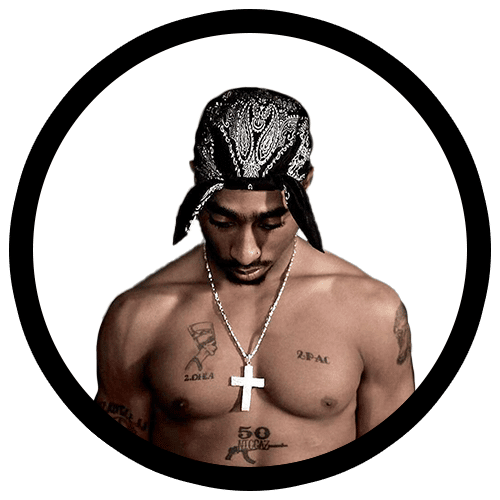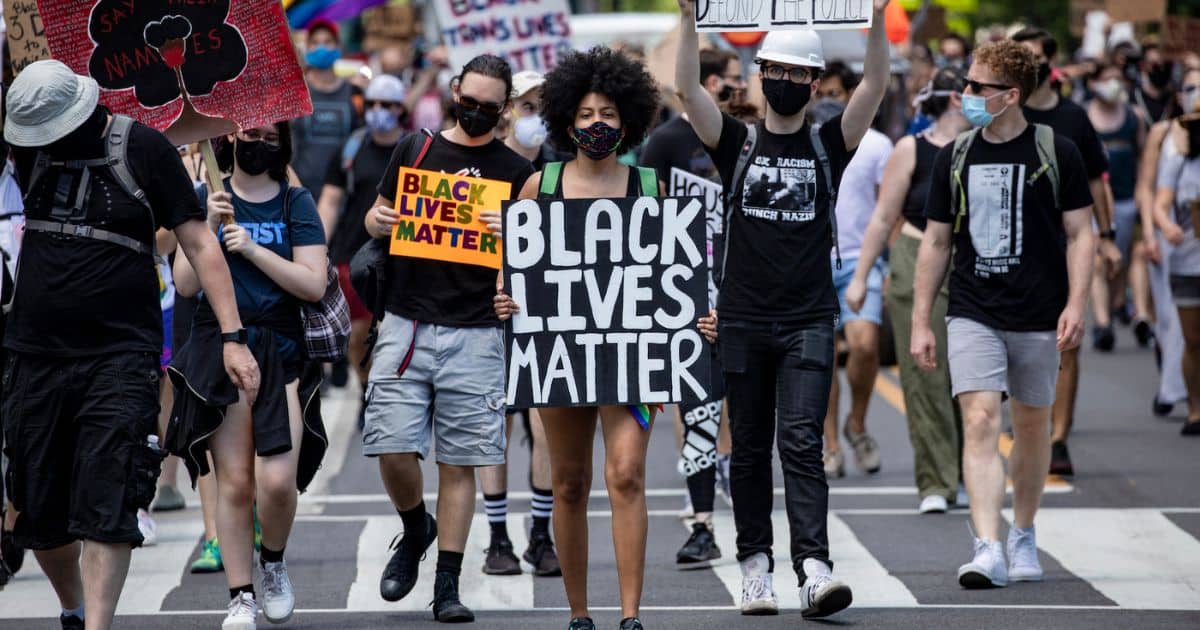In the realm of music and activism, few names carry as much weight as Tupac Shakur. Decades after his untimely death, Tupac’s influence continues to reverberate, particularly within the Black Lives Matter movement. Known for his powerful lyrics, unapologetic stance on racial inequality, and unwavering commitment to social justice, Tupac remains an icon of resistance and a voice for change. By fearlessly addressing issues such as police brutality, systemic racism, and the struggle for equality, he became a catalyst, inspiring a generation to take action and fight for their rights. Tupac’s music and message continue to resonate with those striving for justice and equality, serving as a reminder of the ongoing struggle and the importance of activism in the face of adversity. In this article, we will delve into the profound impact Tupac has had on the Black Lives Matter movement, exploring the ways in which his legacy continues to shape the fight for racial justice today.

Tupac Clothing & Merchandise
Show your respect for one of the greatest legends in hip-hop: 2Pac. Get ready to step up your style game with a stunning range of Tupac Amaru Shakur merchandise, from vintage t-shirts and baseball jerseys to unique bomber jackets! Don’t miss this opportunity – honor his legacy by sporting some must-have Makaveli apparel at unbeatable prices. Hustle those streets like Pac and look the hottest in town – grab yours now!
Tupac’s early life and upbringing
Tupac Amaru Shakur was born on June 16, 1971, in East Harlem, New York City. Raised by a single mother, Afeni Shakur, who was a prominent member of the Black Panther Party, Tupac was exposed to the realities of racial inequality and social activism from an early age. His mother’s influence played a significant role in shaping his worldview and his commitment to fighting for justice. Despite growing up in poverty and facing numerous challenges, Tupac’s talent as a rapper and performer began to emerge during his teenage years. His early experiences and struggles laid the foundation for the powerful voice he would later become in the fight against racial injustice.
Tupac’s upbringing in the tough neighborhoods of New York and later Los Angeles exposed him to the harsh realities of inner-city life. He witnessed firsthand the effects of poverty, violence, and systemic racism on his community. These experiences fueled his desire to speak out against injustice through his music and activism. Tupac’s early life and upbringing provided him with a unique perspective on the issues plaguing Black communities, and this perspective would later be reflected in his music and lyrics.
Tupac’s music and lyrics as a reflection of social issues
Tupac’s music was a powerful medium through which he expressed his thoughts, feelings, and experiences as a Black man in America. His lyrics were deeply introspective, addressing themes of poverty, racism, police brutality, and the struggles faced by marginalized communities. Through his music, Tupac laid bare the realities of life in America’s inner cities, shedding light on the systemic injustices that perpetuated inequality. His songs, such as “Keep Ya Head Up,” “Brenda’s Got a Baby,” and “Changes,” became anthems for those marginalized by society, resonating with their experiences and providing a voice for their frustrations and hopes.
Tupac’s lyrics were often raw, emotional, and confrontational, challenging the status quo and demanding change. He was unafraid to tackle controversial subjects, such as the war on drugs and the prison-industrial complex, and to criticize the government and law enforcement for their role in perpetuating racial inequality. Tupac’s music became a rallying cry for those who felt unheard and marginalized, inspiring them to speak out and demand justice.
Tupac’s activism and involvement in the fight against racial inequality
Tupac’s activism extended beyond his music. He was actively involved in various social justice initiatives and used his platform to raise awareness about racial inequality. In 1992, following the acquittal of four Los Angeles police officers involved in the brutal beating of Rodney King, Tupac participated in protests and spoke out against police brutality. He believed in the power of direct action and encouraged others to take a stand against injustice.
Tupac also sought to uplift his community through initiatives such as the establishment of the Tupac Amaru Shakur Foundation, which aimed to provide educational resources and support for young people. He recognized the importance of education and empowerment in combating systemic oppression and worked tirelessly to provide opportunities for those who lacked access to them.
The impact of Tupac’s message on the Black Lives Matter Movement
Tupac’s message of resistance and empowerment continues to resonate with the Black Lives Matter movement. His unapologetic stance on racial inequality and his commitment to justice and equality have inspired a new generation of activists. The Black Lives Matter movement, which emerged in 2013 following the acquittal of Trayvon Martin’s killer, echoes many of the same concerns and demands for justice that Tupac expressed in his music and activism.
The movement has been fueled by the deaths of countless Black individuals at the hands of law enforcement and the urgent need for systemic change. Tupac’s music and message have served as a guiding light for those involved in the movement, reminding them of the ongoing struggle and the importance of activism in the face of adversity. His lyrics, which speak to the experiences of marginalized communities, continue to be anthems of resistance and resilience.
Tupac’s influence on modern-day artists and activists
Tupac’s influence extends beyond his own era. His impact can be seen in the work of modern-day artists and activists who draw inspiration from his music, message, and commitment to social justice. Artists such as Kendrick Lamar, J. Cole, and Common have been vocal about the influence Tupac has had on their own careers and activism. They have embraced his legacy, using their platforms to address issues of racial inequality and advocate for change.
In addition to musicians, activists across various fields have been influenced by Tupac’s work. His unapologetic approach to speaking truth to power and his dedication to uplifting marginalized communities have set a precedent for how activism can be carried out. Tupac’s influence on modern-day artists and activists is a testament to the lasting impact of his music and message.
Criticisms and controversies surrounding Tupac’s involvement in social issues
Tupac’s activism and outspokenness were not without their fair share of criticisms and controversies. Some argued that his confrontational approach and explicit lyrics perpetuated violence and reinforced negative stereotypes. Others questioned the authenticity of his activism, suggesting that it was merely a marketing ploy or a way to enhance his image. Despite these criticisms, Tupac’s impact on the fight against racial inequality cannot be denied. His commitment to justice and his ability to amplify the voices of marginalized communities remains a powerful force.
Tupac’s legacy and lasting impact on the fight for racial justice
Tupac’s legacy continues to shape the fight for racial justice. His music and message have transcended generations, inspiring countless individuals to take a stand against injustice. His commitment to using his platform to speak out and uplift marginalized communities serves as a reminder of the power of art and activism in effecting change. Tupac’s enduring relevance in the fight for racial justice is a testament to his indelible impact on society.
-
 Cool Tupac Shakur Timberland Design Zip Up Hoodie
Cool Tupac Shakur Timberland Design Zip Up Hoodie -
 Tupac Makaveli Shakur Iconic Timberland Hoodie
Tupac Makaveli Shakur Iconic Timberland Hoodie -
 Hip Hop Gangsta Rapper 2Pac Amaru Shakur LA Dope Baseball Jersey
Hip Hop Gangsta Rapper 2Pac Amaru Shakur LA Dope Baseball Jersey -
 Timberland Logo Tupac Amaru Shakur Dope Varsity Jacket
Timberland Logo Tupac Amaru Shakur Dope Varsity Jacket -
 Rap Icon Tupac Multicolor Graffiti Art Pyjamas Set
Rap Icon Tupac Multicolor Graffiti Art Pyjamas Set -
 Dope 2Pac Shakur Portrait Notorious Black Pajamas Set
Dope 2Pac Shakur Portrait Notorious Black Pajamas Set -
 2pac Shakur Only God Can Judge Me West Side Dope Bedding Set
2pac Shakur Only God Can Judge Me West Side Dope Bedding Set -
 2Pac Shakur White on Blue West Coast Hip Hop Baseball Jersey
2Pac Shakur White on Blue West Coast Hip Hop Baseball Jersey -
 Juice Bishop Power & Respect 2Pac Graphic Tee
Juice Bishop Power & Respect 2Pac Graphic Tee
Resources and recommended reading/watching for further exploration
For those interested in delving deeper into Tupac’s life, music, and activism, the following resources are highly recommended:
- Book: “Tupac Shakur: The Life and Times of an American Icon” by Tayannah Lee McQuillar and Fred L. Johnson
- Documentary: “Tupac: Resurrection” directed by Lauren Lazin
- Album: “All Eyez on Me” by Tupac Shakur
- Interview: Tupac’s 1993 interview with Tabitha Soren on MTV News
Conclusion: Tupac’s enduring relevance in the fight for change
Tupac Shakur’s influence on the Black Lives Matter movement cannot be overstated. His powerful lyrics, unapologetic activism, and unwavering commitment to social justice continue to resonate with those fighting for racial equality. Tupac’s music and message serve as a reminder of the ongoing struggle and the importance of activism in the face of adversity. His legacy lives on in the work of modern-day artists and activists, who draw inspiration from his music, message, and commitment to justice. Tupac’s voice, although silenced by his untimely death, remains a powerful force for change.

